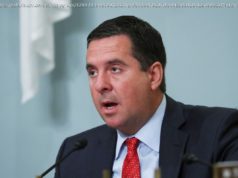Before we worry about that, let’s consider some basic facts about the national debt ceiling. Because we are running a large federal deficit
When Congress returns to Washington after Labor Day, it will need to deal with two increasingly urgent matters – raising the legal ceiling on the national debt and passing a federal spending bill for fiscal year 2018, which begins on October 1 st.
Also read:
Although they may take up other major legislative matters – tax reform, the infrastructure, and another effort to repeal and replace Obamacare – if Congress does not raise the debt ceiling or pass a spending bill, then the financial crisis of 2008 may seem by comparison, just a walk in the park.
Because this Congress apparently has great difficulty reaching a consensus on major political issues, it is likely that on September 30 th, they will not yet have passed a new budget. So they will just kick the can down the road and vote for a continuing resolution authorizing the same level of spending for another two weeks or a month.
If raising the debt ceiling proves equally difficult, can’ t Congress find a temporary solution? Maybe. But what if they can’ t? What if a majority of House Republicans opposes raising the ceiling just enough to get us through October?
On August 21 st, Senate Majority Leader Mitch McConnell (R, KY) stated that there is “zero chance – no chance — we won’ t raise the debt ceiling.” Clearly, he is right. But what if it isn’ t raised until, say, mid-October?
Before we worry about that, let’s consider some basic facts about the national debt ceiling. Because we are running a large federal deficit – over $600 billion this fiscal year – the U. S. Treasury needs to borrow this money by selling Treasury bonds, notes, and bills. But when the debt hits the legal ceiling of just over $19.8 trillion in late September, the Treasury is legally barred from borrowing any more money.
The Secretary of the Treasury, Steven Mnuchin, can stop sending our Social Security checks, covering Medicare and Medicaid costs, or paying members of the Armed Forces. But even more disastrous, the United States will have gone bankrupt.
Would any members of Congress want that to happen? Probably not. But just the threat that it might provides them with an excellent bargaining chip during their negotiations over raising the debt ceiling.
There are quite a few conservative Republicans who would fervently love to reduce federal government spending. And many of them would not mind at all lowering taxes, especially for large corporations and for the rich.
So they’ ll say to Senator McConnell and to House Speaker Paul Ryan (R, WI) : let’s make a deal. We’ ll vote for raising the debt ceiling if you agree to the tax and spending cuts. If not, then don’ t blame us if bad things happen.
A month after the closing of the Obamacare legislative drama, President Donald Trump will get two more chances to reprise his “supporting role” in plays opening next month – passing the government spending bill and raising the debt ceiling. A quick study, the President on August 22 nd disclosed that he may well allow the government to go unfunded unless Congress provides the money he needs to build the wall along our border with Mexico. This should come as no surprise from a man who considers himself a very tough negotiator.
Looming over all of this will be the 2018 Congressional election. With Republicans firmly in control of both Houses of Congress as well as the executive branch, if they can’ t manage to raise the debt ceiling in a timely manner, then what can they do? It would seem increasingly likely that they will hand over control of the next Congress to the Democrats on a silver platter.
Secretary Mnuchin is calling for a clean bill that will simply raise the debt ceiling without any other conditions. But scores of conservative Republicans will not give up without a fight. McConnell and Ryan may be forced to call upon Democrats for help. Surely, they won’ t agree to major federal spending cuts or tax cuts for the rich.
Perhaps the best hope for a timely raising of the debt ceiling would be a clean bill that most Republicans and Democrats would support. Still, even with the adult supervision provided by Mr. Mnuchin, our negotiator-in-chief might veto the bill unless he gets funding for his wall.
Further complicating matters, Mr. Mnuchin’s efforts are being undercut by Gary Cohn, the Director of the National Economic Council and President Trump’s chief economic advisor. Mr. Cohen has declared himself open to negotiations with Congressional leaders to cut spending and taxes in exchange for raising the debt ceiling.
Through the month of September, you will be able to watch these dramas unfold. At the weekly Treasury auctions, the government will have to pay increasing interest rates to entice lenders to buy Treasury bills and notes. The stock market will take a hit, and it won’ t be for just one day. But most alarming, talk of a worldwide financial crisis will begin to build.
When Congress returns, it will be very interesting to see whether the Republican leaders will take up the debt ceiling limit and the federal budget first, or that they waste valuable time on other legislation. If they do, then you can be sure that the last week September will be quite interesting.
About the Author
Steve Slavin has a PhD in economics from NYU, and taught for over thirty years at Brooklyn College, New York Institute of Technology, and New Jersey’s Union County College. He has written sixteen math and economics books including a widely used introductory economics textbook now in its eleventh edition (McGraw-Hill) and The Great American Economy (Prometheus Books} which came out earlier this month.






